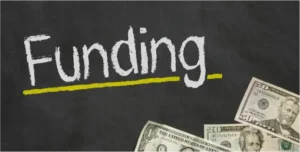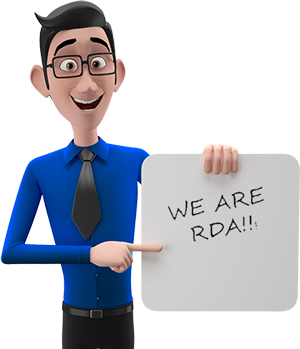Special assessments can be a complex aspect of homeownership, especially within homeowners’ associations (HOAs), where unexpected financial obligations may arise. Navigating these assessments is crucial for homeowners aiming to preserve their property value and maintain an effective budget. Special assessments typically come into play when unforeseen costs exceed the HOA’s budget, necessitating collective funding for repairs, infrastructure upgrades, or emergency expenses. Understanding when these assessments may occur, along with their potential financial impact, is essential for every homeowner.
This article provides a comprehensive guide for homeowners on managing special assessments, covering various funding solutions, and debunking common myths. Equipped with this knowledge, you’ll be better prepared to make informed decisions that protect both your financial health and your community.
Understanding Special Assessments
Homeowners associations (HOAs) play a pivotal role in managing the collective interests of a community, which includes ensuring that the necessary funding is in place for operating expenses and capital improvement projects. However, when unforeseen events or major repairs that exceed the prepared operating budget occur, HOAs often turn to special assessments to cover these costs.
Special assessments are additional charges levied on homeowners when the reserve funds fall short or unexpected costs arise from incidents such as natural disasters or urgent infrastructure needs. Such assessments can place a significant financial burden on homeowners, often amounting to substantial sums.
While these charges are indispensable for the repair and maintenance of shared community structures like roofs and fences, they can create a financial strain for many. This strain is further exacerbated when special assessments are the result of avoidable circumstances like deferred maintenance or inadequate reserve funding—the consequence of common budgeting oversights by association boards.
It’s essential for HOA members to understand that financing options such as disaster loans might be considered in conjunction with these assessments to help distribute the financial impact over time.
|
Common Causes for Special Assessments |
Impact on Homeowners |
|---|---|
|
Natural disasters |
Financial burden |
|
Urgent major repairs |
Surprise charges |
|
Underfunded reserves |
Financial strain |
|
Deferred maintenance |
Additional costs |
The aforementioned table illustrates the association between special assessments’ causes and their financial impact on homeowners.
When Do Special Assessments Typically Arise?
Special assessments typically arise under certain conditions within homeowners associations (HOAs). They are levied in response to emergency situations or when the association faces unexpected costs. Such assessments often cover expenses for major repairs or significant maintenance projects not anticipated during the annual budgeting process, particularly if the HOA’s reserve fund is inadequate.
Special assessments may also be necessary for urgent infrastructure improvements affecting homeowners, such as road repairs or utility line upgrades. Given their unforeseen nature, these assessments can lead to financial strain for homeowners, especially if they are substantial in amount and require prompt payment.
The need for a special assessment can sometimes lead to disagreements among community members. Discord may stem from differing views on the importance, timing, or management of the underlying issues that necessitate the financial burden on homeowners. Despite the challenges involved, special assessments are a vital tool for HOAs, enabling them to address unforeseen or urgent expenses beyond their operating budget and regular assessments.
Exploring Funding Options for Special Assessments
When homeowners associations (HOAs) levy a special assessment, the financial burden on homeowners can be significant, particularly if the assessment is substantial or unexpected. Faced with this potential financial strain, homeowners and association boards must explore a variety of funding options to cover these costs. These options include:
- Home Equity Lines of Credit (HELOC): A HELOC allows homeowners to borrow against the equity in their homes, providing a flexible credit line to manage additional assessment costs.
- Personal Loans: Homeowners might consider obtaining personal loans, which usually do not require collateral but may carry higher interest rates.
- Community Association Loans: These loans are tailored explicitly for HOAs to fund capital improvement projects and major repairs, helping to spread the expense across the community.
- Traditional Bank Loans: Banks may offer similar loans designed for HOAs, with fixed monthly payments that fit within the association’s operating expenses.
By securing a loan, an association can incorporate the cost of emergency projects into their monthly payment schedules, allowing for more predictable financial planning. However, both the association boards and homeowners must carefully assess the impact of these financing options, as interest rates and payment terms can significantly affect the long-term financial situation of individual owners and the community as a whole.
HOA Loans: An Overview
HOA loans provide a financial solution for homeowners associations facing unexpected costs or funding substantial capital improvement projects. These loans disperse the immediate financial burden typically shouldered by homeowners through lump sum payments, offering a more manageable monthly payment structure. However, it’s crucial to note that the convenience of spreading expenses comes with interest, which increases the overall expense and may constrain the HOA’s financial leeway, especially if future revenue is used as collateral.
Before proceeding with an HOA loan, associations must scrutinize their financial health and member reliability. Delays in loan repayment, compounded by the issue of delinquent homeowners, can intensify the financial strain on the entire community.
Here’s a quick overview of HOA loans:
|
Aspect |
Detail |
|---|---|
|
Purpose |
Cover unexpected expenses, fund major repairs |
|
Benefit |
Alleviates immediate burden on homeowners |
|
Repayment |
Monthly assessments with interest |
|
Considerations |
Future financial flexibility, homeowner dues |
HOAs should ensure that members are consistently up-to-date with their regular assessments to mitigate financial risks. Responsible Association boards must weigh these factors to avoid subjecting homeowners to an additional assessment and prevent placing undue burden on the community’s finances.
Comparing HOA Loans to Traditional Special Assessments
Homeowners Associations (HOAs) often face the challenge of funding major repairs or capital improvement projects that exceed their operating expenses. To bridge this financial gap, HOAs can either impose special assessments on homeowners or obtain an HOA loan.
Special assessments are one-time fees charged to cover unexpected costs. This can cause a significant financial burden on homeowners, as they are required to pay this additional assessment in full, on top of their regular assessments. The impact is immediate and can lead to financial strain, especially if the amount is substantial and the notice is short.
An HOA loan, conversely, offers a different financial approach. It provides the association with immediate funding, enabling projects to start promptly without tapping into reserve funds. This loan is repaid over time, translating the cost into manageable monthly payments for homeowners, as opposed to the large lump-sum payment required by traditional special assessments.
Table: Financing Methods for HOA Special Needs
|
Financing Method |
Payment Structure |
Financial Impact |
Project Commencement |
|---|---|---|---|
|
Special Assessment |
One-time fee |
Immediate burden |
Delay possible due to collection |
|
HOA Loan |
Monthly payments |
Spread over time |
Immediate, with no delay |
An HOA loan can ease the financial strain by offering a flexible repayment term while ensuring that essential projects are not postponed due to funding issues. This option can mitigate the immediate financial burden on homeowners, compared to the more abrupt financial demands of a special assessment.
Pros and Cons of Financing Special Assessments
When homeowners associations (HOAs) encounter major repairs or capital improvement projects that exceed the operating budget, they may levy special assessments. Here are the upsides and downsides of financing these additional costs through a loan.
Pros:
- Spreads Payments Over Time: Homeowners can pay in increments, mitigating immediate financial strain. This reduces the need for a lump sum and eases the monthly financial burden on homeowners.
- Preserves Reserve Funds: Loans can protect reserve funds, ensuring they remain for future unexpected costs or emergencies within the HOA.
- Facilitates Immediate Action: Special assessments can swiftly generate funds for necessary projects, allowing for prompt commencement and completion without boosting regular assessments.
Cons:
- Immediate Equity Impact: Special assessments often require upfront payment, which can be a significant burden on homeowners and affect property values, especially if they choose to sell post-assessment.
- Additional Financial Obligation: Financing translates to an added monthly payment, which, while smaller, becomes a regular part of homeowners’ financial responsibility.
Deciding whether to finance a special assessment involves weighing these factors carefully. Association boards must consider the long-term financial health of the community against the current needs and fiscal capabilities of its members.
Financial Implications for Homeowners
Homeowners associations (HOAs) are typically responsible for the maintenance and repairs of common areas within a community. However, major repairs or capital improvement projects can lead to unexpected costs that go beyond the operating budget. To cover these expenses without depleting reserves, an association might levy a special assessment, placing a financial burden on homeowners.
The sudden imposition of additional assessment can cause financial strain, particularly when large sums are demanded with insufficient notice. Homeowners are expected to either pay a lump sum or manage increased monthly payments. Regular assessments are usually planned for in the monthly budget, but the added expense of a special assessment can be challenging for some members.
As an alternative, securing an HOA loan can alleviate the burden on homeowners. These loans are guaranteed by the association’s dues, safeguarding individuals’ credit ratings and property. Repayment terms are flexible, ranging from five to twenty years, yielding manageable fixed monthly payments. This arrangement spreads out the financial impact over time, offering relief from immediate, hefty out-of-pocket expenditures and easing the overall financial strain for homeowners.
Impact of Special Assessments on Property Values
Special assessments by Homeowners Associations (HOAs) can lead to substantial financial burden, placing homeowners under significant strain. Unexpected costs associated with major repairs or capital improvement projects can compel HOAs to levy additional assessments. These charges can be daunting, with homeowners sometimes facing thousands of extra dollars to meet these demands.
The financial strain doesn’t just affect individual households’ finances. It can ripple through the community, influencing property values. A surge in special assessments may increase delinquency rates or even foreclosures if homeowners cannot manage the monthly payment increase. This lack of financial stability can reduce demand for housing within the community, resulting in a downturn in property values.
Moreover, the pressure to pay additional assessments might lead homeowners to curtail other spending, which can include essential home maintenance. This delay in upkeep can negatively impact the overall appeal and condition of properties, further causing potential declines in property values. In the worst cases, unanticipated financial demands might even displace residents. Not only does this affect the cohesiveness of the community, but it can also lessen the area’s appeal to future buyers, potentially degrading property values further.
Common Myths About Special Assessments
Special assessments are often surrounded by misconceptions that can affect homeowners’ attitudes and responses to these financial obligations. Three common myths are particularly prevalent, influencing the perspectives of many within homeowners associations (HOAs).
Myth 1: Special Assessments are Always a Bad Investment
Myth 1: Special Assessments are Always a Bad Investment
Homeowners associations (HOAs) often face the challenge of financing major repairs or unexpected costs that exceed the operating budget. A common misconception is that special assessments are without exception a financial burden on homeowners and are indicative of poor management. However, this is not always the case.
Special assessments can be a proactive means of addressing urgent financial needs within an HOA. They offer an immediate influx of cash for capital improvement projects or significant repairs that the reserve fund may not be equipped to handle. Although the idea of an additional assessment may cause financial strain, it is sometimes the most viable option to ensure the community’s continued upkeep and value.
Moreover, the approval of special assessments usually involves a democratic process, requiring a community vote. This collaborative decision-making process is designed to promote transparency and consider the consent of the homeowners, albeit it may affect the timeliness and acceptance of the funding solution.
Therefore, while special assessments can lead to an increased financial burden and even potential future assessments due to unforeseen costs, they are not inherently a sign of HOA mismanagement. Instead, when used judiciously, they can be an essential tool in maintaining the integrity and functionality of the community’s shared spaces.
Myth 2: Homeowners Have No Recourse for Disputing Assessments
Homeowners Associations (HOAs) have the authority to levy special assessments to fund major repairs or capital improvement projects that fall outside the scope of the regular operating budget. This power is typically outlined in the community’s Covenants, Conditions, and Restrictions (CC&Rs), which serve as a crucial reference for residents seeking to understand their rights and the procedures for both levying and contesting special assessments.
When an additional assessment is presented, homeowners have the opportunity to review their HOA’s governing documents to challenge its validity or fairness. While facing an unexpected financial burden, homeowners should be aware that:
- The imposition of a special assessment often requires homeowner approval through a voting process.
- Homeowners can and should scrutinize the need for the assessment, as well as the procedures followed in its enactment.
If homeowners find themselves under financial strain due to a special assessment, their HOA might provide alternative financing methods to alleviate the burden. This may include offering a monthly payment plan instead of a lump-sum payment.
Failure to pay these assessments could stir potential conflicts within the community, but it also opens the door for negotiation. Discussions about payment terms or alternative arrangements are possible, and homeowners may find recourse in these conversations, mitigating the financial burden on homeowners.
Myth 3: All Homeowners Are Equally Impacted
Myth 3: All Homeowners Are Equally Impacted
The notion that special assessments imposed by Homeowners Associations (HOAs) affect all residents equally is a misconception. While HOAs are responsible for managing operating expenses and funding capital improvement projects, the reality is that individual financial circumstances vary widely among homeowners. Those on fixed incomes or contending with unexpected expenses may find the extra financial burden of a special assessment especially taxing, posing a serious strain on their finances.
Financial Impact of Special Assessments on Homeowners
| Homeowner | Financial Impact |
|---|---|
|
Fixed Income |
Higher Financial Burden |
|
Unexpected Costs |
Severe Financial Strain |
|
Financing Need |
Burden of Seeking External Funds |
If special assessments are not carefully considered, they can lead to increased delinquency, creating a ripple effect of legal and financial challenges for both the individual homeowner and the HOA community at large. The potential consequences of failing to pay these assessments, such as late fees, property liens, and even foreclosure, further highlight the uneven impact on homeowners. It’s essential for Association boards to acknowledge that special assessments are not a one-size-fits-all solution and to seek equitable arrangements that address the diverse financial realities of their members.
Effective Communication Strategies for HOA Boards
Effective communication strategies are essential for HOA Boards when addressing the delicate matter of special assessments. Maintaining transparency throughout the process reassures homeowners and helps mitigate the perceived financial burden. Open dialogues about why additional assessments are necessary for major repairs or capital improvement projects encourage trust and understanding within the community.
Factoring in the potential financial strain, it’s pivotal to discuss the benefits of financing options which may offer a less imposing monthly payment plan over an upfront lump sum. Addressing homeowner concerns promptly and clearly is a cornerstone of successful collaboration and can be efficiently achieved through the use of virtual meeting software. This technology not only facilitates increased participation in meetings but also ensures that all community members are well-informed and can engage from the comfort of their homes.
HOA Boards should consistently notify homeowners about any impending special assessments, as this information directly influences property values and the prospects of selling residences. Communication must be ongoing and proactive to avoid surprises that could lead to a greater burden on homeowners.
Key Strategies to Improve Communication:
- Use virtual meeting platforms to boost attendance.
- Send timely notices about special assessments.
- Offer clear explanations for the need for assessments.
- Present financing options to ease immediate financial impact.
- Engage with homeowners to address their questions and concerns.
Tips for Planning and Budgeting for Special Assessments
Special assessments levied by Homeowners Associations (HOAs) can place an unexpected financial burden on homeowners when major repairs or capital improvement projects arise. To mitigate this strain, proper planning and budgeting are critical for association boards. Utilizes the following tips to ensure financial readiness for unforeseen costs:
- Long-Term Financial Planning: Regularly review and update financial plans to incorporate potential future expenses, minimizing the need for additional assessments.
- Adequate Reserve Funds: Establish and maintain a robust reserve fund specifically designated for major repairs or replacement projects identified in reserve studies.
- Incremental Monthly Payments: Consider adjusting monthly assessments modestly over time to build the reserve fund, rather than imposing a larger financial burden when a significant issue arises.
- Transparency and Communication: Educate homeowners about the operating budget, reserve fund status, and potential expenses. Full transparency can build trust and understanding.
- Professional Consultation: Engage financial experts and advisors to assist in planning and to provide an objective perspective during community board discussions.
Remember, while special assessments are sometimes unavoidable, diligent financial oversight by association boards can minimize the impact on homeowners and prevent unexpected costs from becoming a crisis.
Navigating Community Concerns and Resistance
Navigating Community Concerns and Resistance
Homeowners associations (HOAs) face the delicate task of balancing a community’s needs with financial realities, such as the funding of major repairs or capital improvement projects through special assessments. However, such financial burdens can significantly impact homeowners, potentially leading to a reduction in property values and, in severe cases, the displacement of residents due to financial strain. These additional assessments, beyond regular monthly payments and operating expenses, can also expose homeowners to risks including late fees, property liens, or foreclosure.
It is worth acknowledging that while some members might be well-equipped to handle unexpected costs, this may not be true for the entire community, thus elevating the strain on homeowners. Association boards should strive for transparency and proactive communication to mitigate community tensions. Attending board meetings and reviewing community newsletters are essential practices for homeowners to stay informed and involved. This engagement enables residents to anticipate and prepare for financial changes, and potentially influence decisions before they culminate in additional assessments. Challenging a special assessment can be fraught with additional legal costs, emphasizing the importance of community involvement and informed decision-making from the onset.
Final Thoughts: Making Informed Decisions about Special Assessments
In conclusion, while special assessments can impose a financial burden on homeowners, they are a necessary aspect of Homeowners Associations when unforeseen expenses arise. They ensure the community’s needs are met, particularly for major repairs or capital improvement projects not covered in the operating budget. To limit the burden on homeowners, association boards must prioritize long-term financial planning and maintain transparent communication. A well-prepared reserve fund can alleviate the need for frequent additional assessments. Homeowners should be well-informed about the potential for these costs and participate actively in HOA meetings to gain a clearer understanding of their community’s financial health. By staying engaged and asking pertinent questions, homeowners can help influence the management of regular and extraordinary assessments, contributing to a more equitable and foresighted financial framework within their association.
Related Articles:
- HOA Special Assessments: Planning, Communication, and Payment Strategies
“Learn about planning, communication, and payment strategies for special assessments.” - HOA Special Assessments: FAQs and Common Concerns
“Answers to frequently asked questions and common concerns about HOA special assessments.” - How to Allocate Surplus Funds Wisely in Your HOA
“Discover how to wisely allocate surplus funds in your HOA.”








